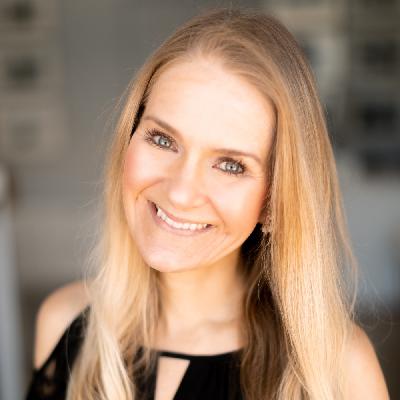Women's Cycles: Aligning with Nature and Intuition
Description
In this episode of the Fire, Soul, and Grace podcast, Dr. Kristi Tompkins welcomes Dr. Jenna Rayachoti, a Naturopathic Doctor who specializes in many women's health conditions including infertility, post-birth control support, perimenopause, and others. Together, they discuss the importance of intuition, the wisdom of nature and seasons, self-care, and sisterhood in balancing your menstrual cycles. They discuss the adverse impact that chronic stress has on women's bodies and health and natural ways to better adapt to stress. Tune in to hear insights into the profound healing power of Naturopathic and Functional Medicine to live a life with greater health, joy and meaning.
Guest Bio: Dr. Jenna is a mother, birth doula, returned Peace Corps volunteer, Naturopathic Doctor, and lover of Mother Earth. Her mission is empowering women to understand their hormones, menstrual cycles, and bodies, enabling them to lead lives with confidence and ease, focusing on what they love most. She combines science and magic to create a holistic and transformative experience for her patients and clients. Dr. Jenna works with women one-on-one in her private practice and through her group programs. She lives in the Methow Valley in Washington with her two beautiful children and husband. Jenna finds joy being in the mountains, indulging in culinary experiments, exploring the magical realm with her 5-year-old daughter, and delving into all things astrology.
In this episode, the hosts emphasize the importance of taking breaks and practicing self-care for overall well-being. They both agree that self-care is necessary to replenish emotional and physical reserves. The discussion revolves around the idea that letting go of stress and control can lead to positive outcomes, such as improved fertility and other unexpected possibilities. The guest also highlights the significance of training the nervous system through daily practices like mindfulness and biofeedback to build resilience and effectively cope with stress.
The hosts delve into the importance of building resilience and adaptability to effectively deal with stressful situations. They acknowledge that reducing stress is not always possible due to job or responsibility-related factors. Instead, they emphasize the need to develop resilience and learn methods and tools for stress adaptation.
One way to build stress resilience is through daily practice. The hosts mention activities like mindfulness and meditation as practices that can train the nervous system to handle stress. They compare this to training for a marathon, where consistent practice is necessary to prepare the body for the physical demands of the race. Similarly, consistent practice of stress-reducing techniques can help individuals develop the capacity to deal with significant stressful events.
The hosts also discuss the importance of reframing stressful situations. They encourage listeners to objectively assess the situation, seeking ways to reframe it in a more positive or manageable light. They share personal experiences, such as going through naturopathic medical school, where it was challenging due to the overwhelming pressure and workload, but persevered because of their tenacity and commitment. They acknowledge that quitting jobs or avoiding stress is not always feasible for many people, but they can utilize tools and techniques to mitigate stress and make the situation more manageable.
The host and guest explore the concept of letting go of control as a potential catalyst for positive outcomes. They acknowledge that women often feel a strong desire to control their fertility and the process of trying to conceive. They also recognize that fertility is a natural process that cannot be forced or controlled. They mention that women sometimes experience unexpected success when they let go of control over the situation. By relinquishing control and reducing stress, women may create a more favorable environment for conception.
The guest suggests that the idea of surrendering and releasing stress extends beyond fertility and can be applied to various aspects of life. They discuss how women may feel torn between responsibilities and self-care but acknowledge that it may not always be possible due to obligations. Instead of eliminating stress, practice building stress resilience and adaptation. Using adaptogens, substances that help the body adapt to stress and build resilience can be very therapeutic. By utilizing tools and strategies to mitigate stress and persevere through challenging situations, individuals may be able to better navigate difficult circumstances and improve their overall well-being.













